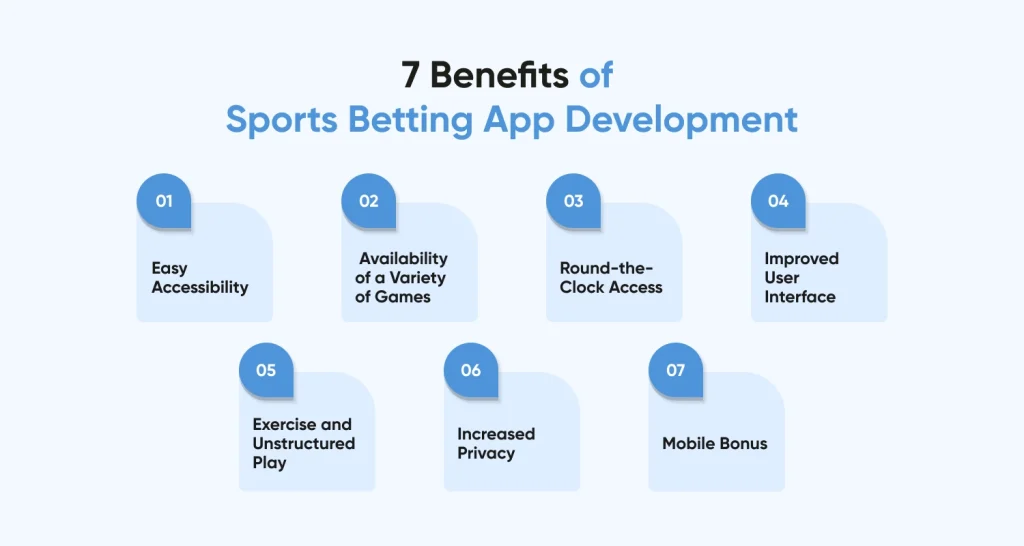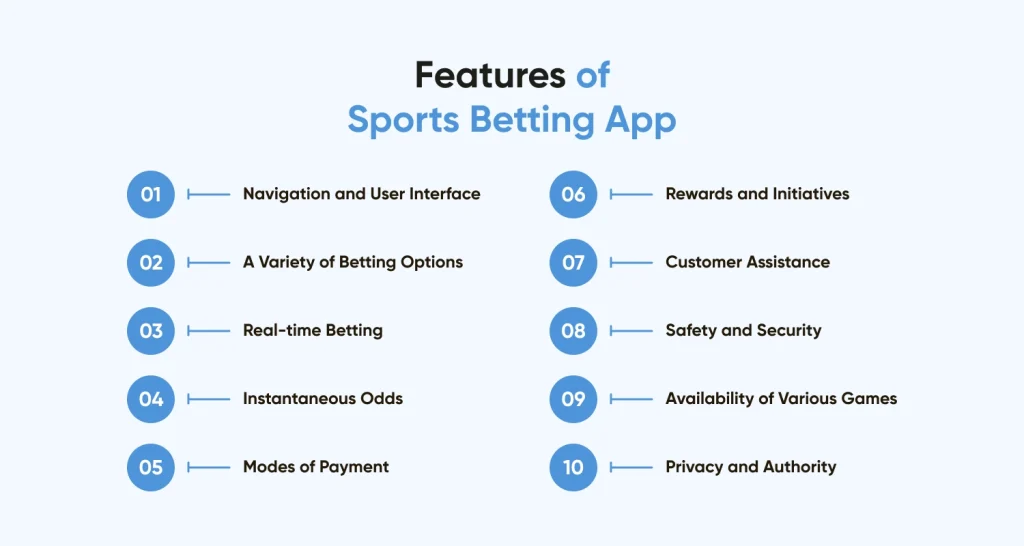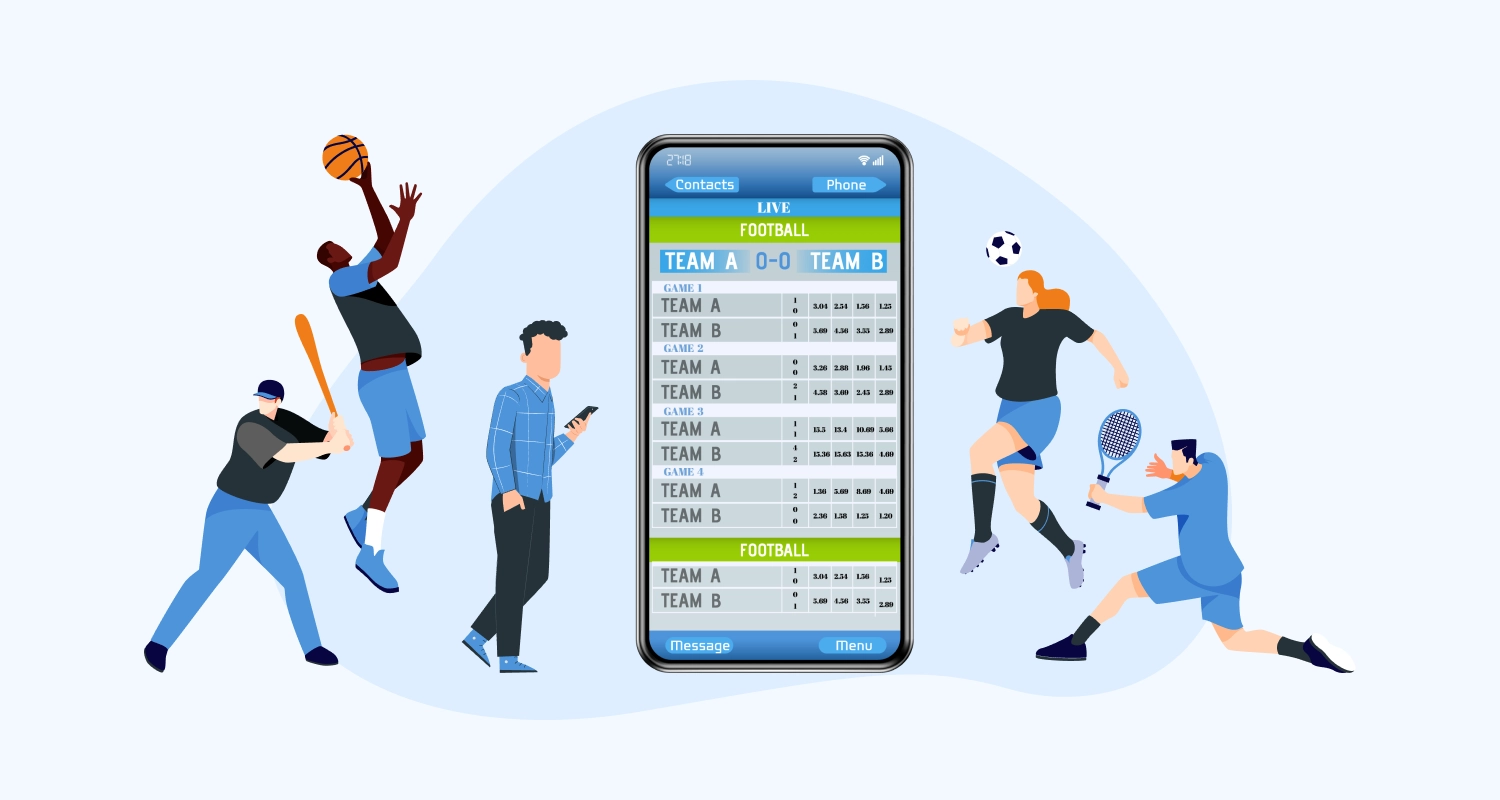A well-liked recreational activity, betting dates back to the 17th century. The rise of sports betting apps has given the established betting sector access to a new virtual betting platform made possible by technological advancements.
Globally, the sports betting market has expanded significantly in recent years. According to market research, the value of the worldwide sports betting market is approximately USD 83.65 billion. Additionally, the study projects that by 2030, the market will expand at a CAGR of 10.4%.
The market is booming, but there is a lot of competition. It’s difficult to build a fantasy sports app, from navigating tight betting laws to having your app accepted by the app store.
We know you must have many questions if you are itching to get into the betting business. This blog will cover all the fundamental queries about the advantages, methods, expenses, technology, etc. of developing betting apps.
So read this blog carefully to find the answers to your questions about the creation of betting apps.
7 Benefits of Sports Betting App Development

In the old-fashioned setup, you had to wait in a long queue to wager your number, but in the current technologically advanced era, that is no longer the case. It makes mobile apps a viable option for betting at your fingertips.
Hire mobile app developers to create a robust app that in return lets you enjoy all the below benefits. Besides, there are other advantages to creating a sports betting app for beginners. Let’s examine some other advantages of developing betting apps:
Easy Accessibility
Sports betting sites are now accessible on smartphones. For end consumers, the ability to be accessible while on the go has completely changed the betting experience. Since there are no geographical restrictions thanks to global technological communication, players can put their bets anywhere.
Availability of a Variety of Games
What is the finest feature of different smartphones that allows access to games? It offers users a terrific gaming experience on small screens and gives them access to a large selection of slots, professional sports, esports, casinos, and more. The sports that best fit the participants’ betting preferences can therefore be selected.
Round-the-clock Access
The best sports betting apps provide customers with more than just more convenient betting options; they also give you access to a wide range of betting markets and enable you to wager at any time or place. Put simply, users of sports betting programs can place bets seven days a week, twenty-four hours a day.
Improved User Interface
Developers and designers of the best gambling apps put in a lot of effort to ensure that the end user’s UI/UX is flawless. Many sports betting software development firms have switched to mobile online betting apps to give players the best possible gaming experience.
Users are now more inclined to use mobile sports betting apps for fantasy sports websites development and app development because of their responsiveness and improved user experience. These applications are made to work with a variety of devices, according to the developers. This makes it simple for users to visit their favorite sports betting websites.
Exercise and Unstructured Play
Many online betting apps provide free or inexpensive practice games, allowing users to improve their betting abilities. With no cash commitment, it allows players to experiment with different games, bet kinds, betting markets, and other features.
Increased Privacy
There are many people eager to investigate the market for betting apps. However, they are unable to investigate well-known options or go to actual betting clubs due to privacy issues. Moreover, mobile gambling apps let users learn more about the many kinds of bets available and the betting industry. Users can safeguard their privacy and sports can wager on and more.
Mobile Bonus
Professional gamblers have long benefited from the convenience that sports betting software offers, and mobile sports betting has been available for a while. The majority of these applications provide download bonuses and mobile sports betting incentives, which turn wagering into a profitable experience for the user.
It also makes it more profitable for people to download the program. However, that also enables users to provide an amazing betting experience.

Step-by-step Procedure for Sports Betting App Development
The process of creating a user-friendly sports betting app involves several considerations. The entire procedure, from organizing a development team to posting content to the app store, can seem a little laborious. This is a step-by-step tutorial on how to make a betting app.
Step 1: Develop Your Concept
The ideation of your app is the initial stage in the creation process of any app. A clear vision is essential because it will serve as the basis for your app in the future. Your development team will receive concepts more smoothly if you have a clear vision.
You can move on to the next phase and omit this one if your vision is clear already. If you’re still working on your “original idea,” you might look at the sports betting apps that are currently in app stores.
Step 2: Examine Your Competitors
Following the ideation stage, you should evaluate your rivals. Since these are likely the leading companies, developing sports betting apps is a profitable field to pursue. Primarily, studying your rivals will aid in a more thorough examination of the market and reveal any gaps that exist that you may fill for your customers.
This might make your sports betting app stand out from the competition and achieve incredible success. You can gain valuable insights into your competitor’s strategies, advantages, and disadvantages by carefully examining their important business KPIs.
Step 3: Obtain the Necessary Certifications
A sports betting app, unlike any other app, needs to apply for a license and abide by the law to be used. The regulations governing compliance differ based on the jurisdiction of a given nation or state. As an illustration
- USA: Several states in the US, like Nevada and New Jersey, allow businesses to use sports betting applications.
- Australia: The nation has rather lax gambling legislation. In actuality, it promotes the betting industry. You can begin developing your sports betting app as soon as your license is approved.
- Europe: European gambling regulations are more complicated than those in the USA and Australia. The majority of EU member states allow sports betting in one way or another.
- As you have seen, there is an endless variation in the betting rules across many nations. It is advisable to entrust the procedure to an experienced attorney.
Step 4: Choose a Technology Partner
An app’s development team is not the only factor that affects its success. Several things need to be taken into account, including marketing, risk management, security, business outlook, and so forth. Here, having a well-organized application development team is essential.
Having said that, it is frequently impractical to have an internal team as vibrant as this. Consulting with experts from a sports betting app Development Company that offers the best development services is advised.
Step 5: Give UI/UX Designing Top Priority
One of the main causes of app failure is a poor user experience. Speak with your IT partner about the UI/UX design of the betting app to prevent making this mistake. If at all possible, take into account creating a graphical design mockup to improve the UI’s appearance and feel.
Remember that people are visual beings. Creating a straightforward user interface will probably keep consumers interested. For a more engaging experience, you can add brief animations to window transitions.
Step 6: Choose Your Backend Infrastructure
First and first, concentrate on the app design portion of the project; after you have it just right, move on to developing the backend architecture.
The most important component of your entire program is backend development since it handles all data-driven functions. It is thought that adding new features, changing old ones, and managing heavy user traffic is best accomplished with a backend architecture that is both scalable and stable.
Utilizing microservices infrastructure is advised to provide a fully scalable, enterprise-level solution. Your software can be divided into a tiny cluster of independent services by using microservices. Building the application simultaneously is possible because of the non-interconnected services. This shortens the time required to design an app and significantly increases productivity.
Step 7: Take Into Account Developing an MVP Application
The creation of sports betting software from start to finish can take a lot of time. It is preferable to create an MVP version of the application to establish yourself in the market. MVPs (Minimum Viable Products) provide customers with the most essential features of sports betting apps.
Developing an MVP version enables you to obtain early end-user input. You can better grasp your end users’ trouble areas by analyzing the feedback. After that, you may update your product to solve those pain areas and transform the insights.
Features of Sports Betting App

Apps for mobile sports betting have grown in popularity in recent years due to their many advantages. These applications have several features for sports betting that are intended to improve user experience and offer a smooth betting process. Key characteristics of apps for mobile sports betting include:
1. Navigation and User Interface
A key component of any mobile sports betting software is an intuitive, well-designed user experience. It should be simple for users to navigate between the various betting markets, check the odds, and place bets. The user interface should have a clear, aesthetically pleasing layout and an intuitive menu system.
2. A Variety of Betting Options
Users should have access to a variety of betting possibilities through a top-notch mobile sports betting app. These consist of parlays, teasers, over/under bets, spread bets, and money line bets, among others. Users will interact with the program more when there are more betting possibilities accessible. Learn more about AI’s function in the sports sector by reading.
3. Real-time Betting
Users of mobile sports betting applications can wager on events live thanks to a popular feature called live betting. A dependable live betting option that provides users with real-time updates on the game’s status and odds should be included in the app.
4. Instantaneous Odds
Users of mobile sports betting apps should have access to real-time updates of the most recent odds. Because customers can see the most recent odds for every market, this tool helps users make well-informed judgments when they place bets.
5. Modes of Payment
A selection of payment methods should be provided by a reputable mobile sports betting app to its consumers. These consist of bank transfers, e-wallets, and credit cards. Additionally, a safe payment mechanism that safeguards users’ financial and personal data should be included in the app.
6. Rewards and Initiatives
Bonuses and promotions are frequently offered by mobile sports betting apps to entice new customers and keep hold of current ones. Free bets, deposit bonuses, and loyalty schemes are a few examples of them. The terms and conditions for these promos and bonuses should be clearly stated in the app.
7. Customer Assistance
Dependable client service should be offered by the best AI sports betting app. Email, live chat, and phone help are a few examples of this. When users have questions or problems, the support staff should be able to answer them quickly, be informed, and be there around the clock. You can also identify and implement the AI in sports industry to enhance and expand customer usage.Â
8. Safety and Security
An essential component of any mobile sports betting software is security and safety. To safeguard users’ money and personal information, the app should encrypt data, enforce strict password requirements, and release updates often to fix security flaws.
9. Availability of Various Games
One of the most essential aspects that any betting gaming app should have is the ability to access a variety of games directly from the sports betting app. Users will be able to wager on well-liked sports like football, basketball, and soccer with darts and snooker.
10. Privacy and Authority
Users should have total control and privacy with betting apps. People who value openness and privacy about user consent are not any different from those who play online games. As a result, make sure your betting software enables users to wager from any location without disclosing their identity or private data.
All things considered, consumers should have access to a variety of services through mobile sports betting apps that guarantee the protection and safety of their financial and personal data while also facilitating a smooth betting experience.
Conclusion
Building a betting app is not without its challenges. We have outlined every stage involved in developing a sports betting app, from ideation to post-launch marketing initiatives.
Are you still unsure about where to begin? Do not worry; we have you covered! For a free consultation on your proposed sports betting app, get in touch with us. Our sports betting app developers, who have comparable experience, will be useful in turning your ideas into reality.
Frequently Asked Questions
1. How Do Sports Betting Apps Make Money?
A portion of bets placed through betting apps’ platforms is how they generate revenue. This portion, commonly known as a “rake,” is deducted from each wager’s earnings. The kind of bet and the staked amount determine how much rake the app takes in.
2. How Much Does It Cost to Create a Sports Betting Application?
The approximate cost to develop a betting app platform ranges from $35,000 to $90,000, depending on the extra features. However, the price of developing a betting app varies greatly. Several elements need to be taken into account before an approximate amount is determined.
3. How Does Sports Betting Work through an App?
Users who utilize sports betting apps can wager on sporting events, games, and matches. Users can choose which teams, players, or events they want to wager on as well as how much money they want to risk using the app.
4. What Payment Options Should Be Integrated into a Sports Betting App?
NETELLER, Skrill, and Stripe are three well-liked choices. The payment system Stripe is renowned for its quick and safe transactions. Because this approach is so user-friendly, it is frequently included in sports betting apps.
5. What Technologies Are Commonly Used in Sports Betting App Development?
A mobile app development company can construct websites and mobile apps using a variety of technologies. React, Angular, JS, Node, Python, PHP, MySQL, MongoDB, PayPal, AWS, and Java are a few of the most widely used ones.
